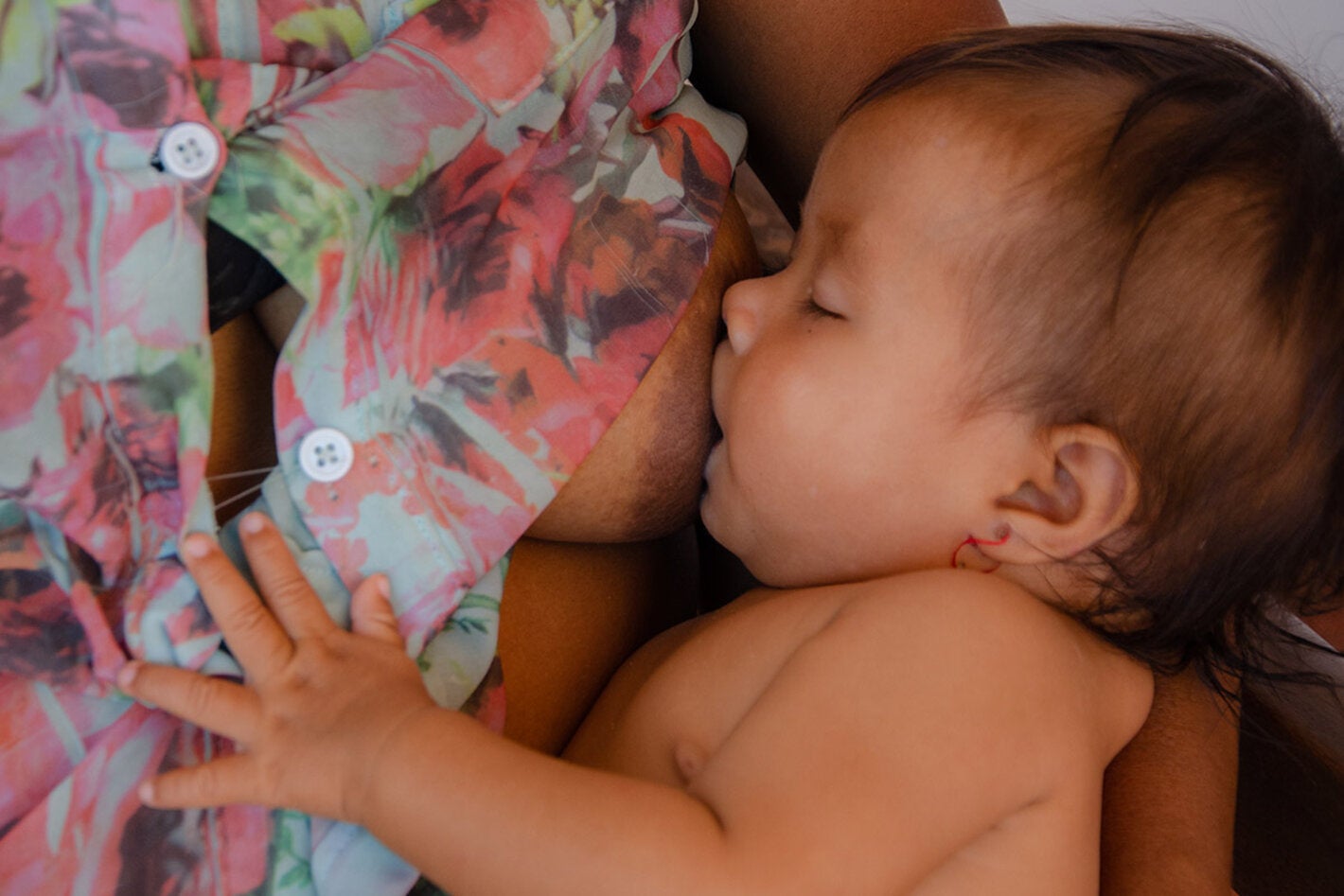
World Breastfeeding Week 2009 is from 1-7 August
Washington, D. C., 4 August 2009 (PAHO) - Emergencies can happen at any time and any place. When emergencies occur and food and clean water are scarce, infants and young children are especially vulnerable. No matter what the emergency—conflict, earthquake, flood, or influenza pandemic—breast-feeding is a lifeline that saves lives.
The theme of this year's World Breastfeeding Week (1-7 August 2009), "Breastfeeding: A Vital Emergency Response," highlights breastfeeding as a shield that protects infants and young children anywhere and at all times. Infants and young children are especially vulnerable to malnutrition, illness, and death during emergencies. Breastfeeding can be the one safe and secure source of food and fluids and keeps an infant warm and close to his or her mother. Breast milk, instantly available, also protects against many common infections.
A common misperception is that stress or inadequate nutrition can compromise a mother's ability to breast-feed successfully. The result of this notion is the unsolicited or uncontrolled donation of breast-milk substitutes. These products undermine breast-feeding and should be avoided. Protecting breastfeeding from inappropriate marketing influences is an essential component of emergency interventions. Instead, the focus should be on active protection and support of breastfeeding.
PAHO Director Dr. Mirta Roses notes that "Emergency preparedness is vital, and supporting breastfeeding in nonemergency settings will strengthen mothers' capacity to cope in an emergency."
The Baby-friendly Hospital Initiative and the International Code of Marketing of Breast-milk Substitutes are two important global policy instruments whose implementation helps create a supportive breast-feeding environment.
"During emergencies, mothers need active support to continue or reestablish breast-feeding," remarked Dr. Chessa Lutter, PAHO's Regional Advisor in Food and Nutrition. "In addition, they need safe places for breastfeeding, access to skilled counselors, and mother-to-mother support."



